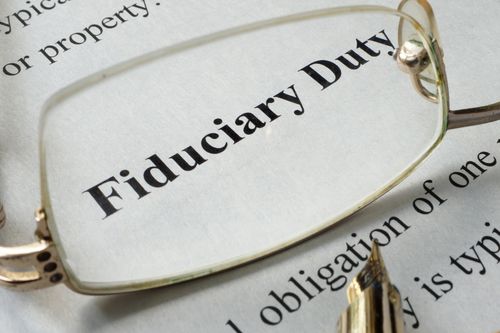On Nov. 22, 2021, the IRS released a proposed rule that would extend the annual furnishing deadlines for Sections 6055 and 6056 reporting under the Affordable Care Act (ACA). This proposed rule would essentially make permanent the furnishing deadline extension that has been provided for each prior year of ACA reporting. Specifically, the proposed rule would:
- Extend the due date for furnishing statements to individuals under Sections 6055 and 6056 by 30 days from Jan. 31 each year; and
- Provide additional penalty relief related to furnishing statements to individuals under Section 6055 for every year in which the individual mandate penalty is zero. Under this relief, employers would generally only have to provide Form 1095-B to covered individuals upon request.
The proposed rule would also provide that minimum essential coverage (MEC) does not include Medicaid coverage that is limited to COVID-19 testing and diagnostic services provided under the Families First Coronavirus Response Act (FFCRA).
Under the proposed rule, the due date for filing forms with the IRS under Sections 6055 and 6056 remains unchanged. This means that forms must generally be filed with the IRS by Feb. 28 of the year following the calendar year to which the statement relates (or March 31, if filing electronically).
Sections 6055 and 6056 Reporting
Sections 6055 and 6056 were added to the Internal Revenue Code (Code) by the ACA.
- Section 6055 applies to providers of MEC, such as health insurance issuers and employers with self-insured health plans. These entities will generally use Forms 1094-B and 1095-B to report information about the coverage they provided during the previous year.
- Section 6056 applies to applicable large employers (ALEs)—generally, those employers with 50 or more full-time employees (including full-time equivalents) in the previous year. ALEs will use Forms 1094-C and 1095-C to report information relating to the health coverage that they offer (or do not offer) to their full-time employees.
Individual statements (Forms 1095-B and 1095-C) are generally required to be furnished by Jan. 31 each year. Forms are generally required to be filed with the IRS by Feb. 28 annually (or by March 31 annually, if filing electronically).
Proposed Extended Furnishing Deadlines
The proposed rule would provide an automatic extension of 30 days to furnish statements (Forms 1095-B and 1095-C) to individuals under Sections 6055 and 6056. Because the extension is automatic, reporting entities would not need to formally request an extension from the IRS.
Under the proposed rule, statements furnished to individuals will be timely if furnished no later than 30 days after Jan. 31 of the calendar year following the calendar year to which the statement relates. If the extended furnishing date falls on a weekend day or legal holiday, statements will be timely if furnished on the next business day.
While this rule is in proposed form and has not been finalized, employers and coverage providers may take advantage of the automatic 30-day extension until the rule is finalized. The furnishing deadline is March 2, 2022.
Impact on Filing Deadline
The proposed rule does not extend the due date for filing Forms 1094-B, 1095-B, 1094-C or 1095-C with the IRS. This due date remains Feb. 28, if filing on paper, or March 31, if filing electronically. Because the due dates are unchanged, potential automatic extensions of time for filing information returns are still available under the normal rules by submitting Form 8809. Additional extensions of time to file may also be available under certain hardship conditions.
Proposed Alternative Method of Furnishing Under Section 6055
The individual mandate penalty has been reduced to zero, beginning in 2019. As a result, an individual does not need the information on Form 1095-B in order to calculate the individual’s federal tax liability or file a federal income tax return. However, reporting entities required to furnish Form 1095-B to individuals must continue to expend resources to do so.
For all years that the individual mandate penalty is zero, the proposed rule would provide an alternative manner for a reporting entity to furnish statements to individuals under Section 6055. Under this alternative manner of furnishing, the reporting entity must post a clear and conspicuous notice on its website stating that responsible individuals may receive a copy of their statement upon request. The notice must include an email address, a physical address to which a request may be sent and a telephone number to contact the reporting entity with any questions. Reporting entities must generally retain the website notice until Oct. 15 of the year following the calendar year to which the statement relates.
ALEs that offer self-insured health plans are generally required to use Form 1095-C, Part III, to meet the Section 6055 reporting requirements, instead of Form 1095-B. Self-insured ALEs may use this relief for employees who are enrolled in the ALE’s self-insured plan and who are not full-time employees of the ALE, as well as for non-employees (such as former employees) who are enrolled in the self-insured plan. However, ALEs may not use the alternative method of furnishing for full-time employees who are enrolled in the self-insured plan.
If, in the future, the individual mandate penalty is not zero, the IRS anticipates that reporting entities will need adequate time to develop or restart processes for preparing and mailing paper statements to responsible individuals. If the individual mandate penalty is modified in the future, the IRS anticipates providing guidance, if necessary, to allow sufficient time for reporting entities to restart the reporting process.
Elimination of Good Faith Transition Relief from Penalties
For each prior year of reporting, the IRS has provided transitional good-faith penalty relief for reporting entities that could show that they made good faith efforts to comply with the information reporting requirements. However, the transitional good-faith relief from penalties for the reporting of incorrect or incomplete information on information returns or statements is not available for reporting for tax year 2021 and subsequent years.
This good-faith relief was intended to be transitional to accommodate public concerns with implementing new reporting requirements under the ACA. These reporting requirements have now been in place for six years, and the IRS has determined that transitional relief is no longer appropriate. Therefore, the IRS has discontinued the transitional good-faith relief after tax year 2020.
Medicaid Coverage of COVID-19 Testing and Diagnostic Services
Prior guidance as a result of the COVID-19 pandemic has provided that Medicaid coverage that is limited to COVID-19 testing and diagnostic services under the FFCRA is not MEC under a government-sponsored program. As a result, an individual’s eligibility for this type of coverage does not prevent the individual’s eligibility for a premium tax credit.
The proposed rule would add Medicaid coverage for COVID-19 testing and diagnostic services to the health coverages listed in regulations that do not qualify as MEC under a government-sponsored program.
Employer Action
While these provisions, if finalized, would take effect for the 2022 calendar year, employers and insurers may rely on the proposed regulations for the reports due in 2022 for the 2021 calendar year. Therefore, the deadline for 2021 ACA individual statements is automatically extended by 30 days from Jan. 31, 2022, to March 2, 2022. Contact a Bolton Consultant today for more information about ACA reporting for your organization.




